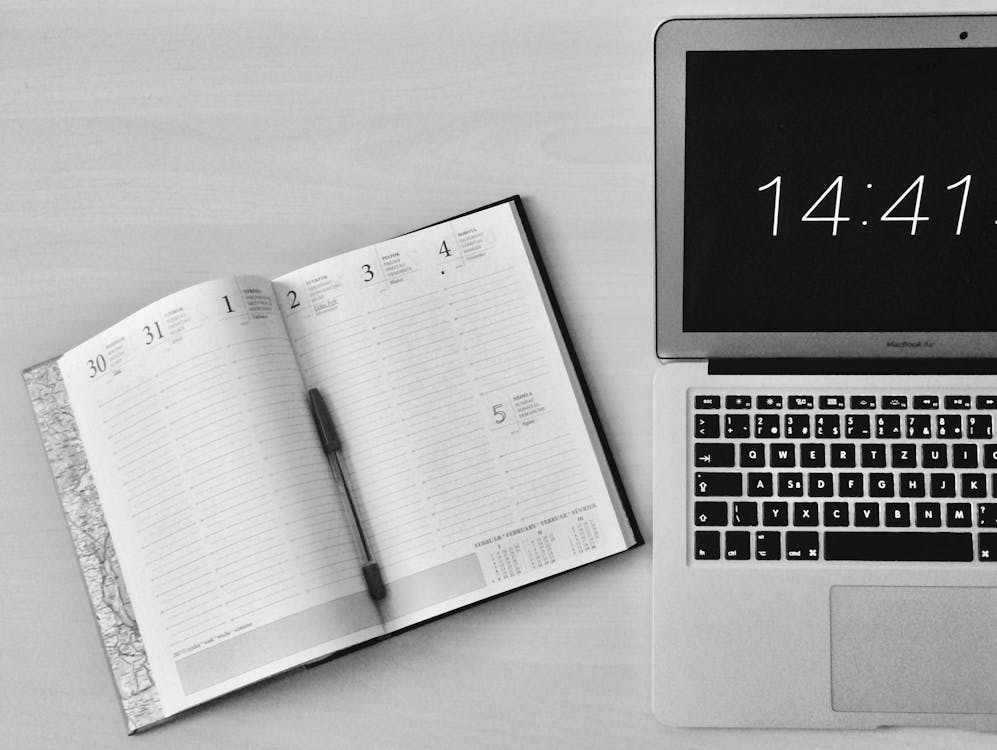How to Solve Your Procrastination Problem
December 30, 2015Alright, so we made all these goals and plans, but where should we start and how should we go about putting them into practice?
Procrastination is a lot of people's personal nemesis.
With this in mind, here are a few tips on how to go about it:
Schedule your life on paper

When you schedule tasks that you have to do on a planner or a notebook, the feeling of actually getting through the to-do list and crossing everything out with a pen is very liberating.
It feels like an achievement!
Try to actually write things down - when a week gets hectic it's easy to feel so overwhelmed with work that you lose yourself and forget about everything.
But if it's on your to-do list, you can't forget it!
And you also can't stress out about forgetting anything so it's a win-win!
Having your tasks written down really helps you feel like you have a plan to tackle everything, as well.
Read also: How to organize your life with a bullet journal.
Set up a reward system
Attributing yourself a reward after finishing a task is a great motivational tactic.
Try to think of something that you like to do on your free time - e.g. watching an episode of your favorite tv show.
When you finish your tasks, reward yourself by watching an episode - throw in some snacks too, if you want!
- Get a good amount of sleep

Being well-rested is very important for productivity - fatigue is the enemy of productivity and focus.
Try to get your work done early on during the day so you won't have to stay up late to finish it.
That way, you will be able to have some down time in the evening before going to bed, which will help increase the quality of your sleep, as well.
You'll sleep a lot better if you aren't overly stressed and tired when you go to bed.

Being well-rested is very important for productivity - fatigue is the enemy of productivity and focus.
Try to get your work done early on during the day so you won't have to stay up late to finish it.
That way, you will be able to have some down time in the evening before going to bed, which will help increase the quality of your sleep, as well.
You'll sleep a lot better if you aren't overly stressed and tired when you go to bed.
Look at the big picture
We are human and we slip up from time to time - it's normal and you shouldn't be too hard on yourself.
However, try to notice when the slip-ups and the excuses are becoming a habit!
If you think about the long-term effects of constantly avoiding the tasks you are supposed to finish, you know that it will most likely seriously injure your chances of accomplishing your goals.
Stay focused on the big picture and not just on the not-so interesting task that you have to do next - you will be reminded of the importance of not ignoring them!
Get up early

This is one of the most important rules.
It might differ from person to person, but usually people are most productive in the morning period, but that is if they've had a good night's sleep.
So turn in early and get up early and ready to start working!
If you finish early, you'll have the rest of the day to do whatever you like.
However, if you wake up late and walk around groggily in your pajamas, you'll end up spending the whole day thinking about a task you have to complete and never actually getting any work done.
You might have to be a little disciplined on the first few weeks but once the habit is formed, it'll become easier, especially when you start seeing the benefits!
Run from temptation
If you often find yourself eyeing your computer and wishing you could be watching a movie or just scrolling away on the internet, get away from the temptations!
Leave your computer or whatever it is that distracts you behind and go study or work somewhere else (to a coffee-shop or a library, for example).
Also, avoid texting while you're studying or working, as it keeps removing your focus from the task at hand, which will make it very difficult for you to get in the 'productive zone'.
Schedule free days

Nobody likes feeling like they have work to do every day and are always trying to cram some fun or free time in between.
We need these periods of relaxation to let our minds rest but also to absorb what we have been learning.
Divide your tasks between the various days of the week in a balanced way and try to leave a free day for you to do whatever you like.
Read also: How to have a more balanced life starting today (+ a free weekly planner for you to download!)
Remember why that goal was important to you
The key to keeping yourself motivated is staying ambitious.
If somewhere along the way you forget how much you wanted to be successful in the beginning, you'll lose that motivation and that focus and drive.
Eventually, you will find yourself not caring very much about whether you complete your tasks or not because you've lost the big picture.
Make a mood board next to your work or study area - it'll make you remember your goals and if it looks pretty, that's a bonus!








0 comment(s)